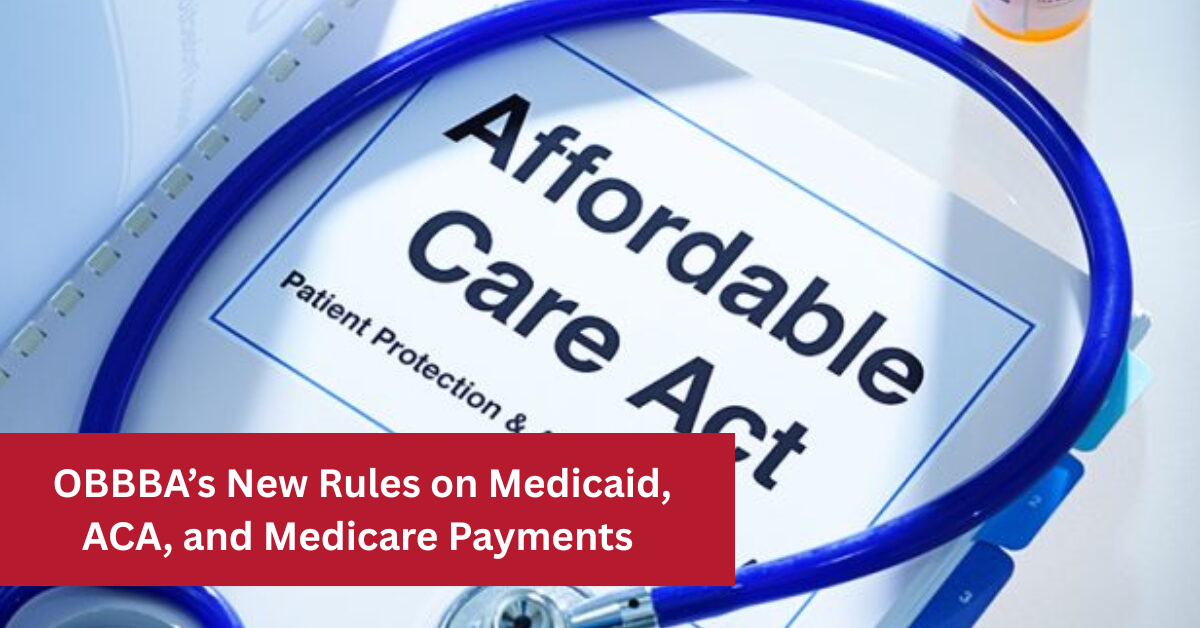The healthcare landscape in the United States is always changing, and the latest updates come through the Inflation Reduction Act, now known as OBBBA (the “Inflation Reduction Act” formally known as the “Inflation Reduction Act of 2022”). This law brings important changes to three major programs: Medicaid, the Affordable Care Act (ACA), and Medicare. For many Americans, especially younger people starting to think about healthcare, these changes affect how payments are adjusted in response to inflation.
Understanding these payment reforms and the ongoing debate about inflation adjustments is essential, as they influence the cost, accessibility, and quality of healthcare. Whether you’re managing your own health insurance or just curious about government healthcare policies, this article breaks down what you need to know.
What is OBBBA and Why Does It Matter?
OBBBA stands for the Inflation Reduction Act, a law passed to help control rising healthcare costs by reforming how government programs like Medicaid, ACA, and Medicare handle payments to hospitals, doctors, and insurance providers.
This act aims to make healthcare more affordable by including rules for inflation adjustments—meaning payments increase or decrease based on how much prices rise. This sounds simple but involves complex decisions that affect millions of Americans and the healthcare system’s future.
Changes to Medicaid Payment Structure
Medicaid helps low-income families get medical care, so any changes here are important. Under OBBBA, Medicaid payments may be adjusted yearly to reflect inflation rates. This means doctors and hospitals will receive more money if the cost of services rises.
However, some states express concern that these payments might not keep pace with true inflation, which can limit healthcare access. The debate is about finding a balance between budget limits and making sure patients get timely, quality care.
ACA Marketplace Premiums and Inflation Adjustments
The Affordable Care Act sets up marketplaces where people can buy health insurance plans, often with subsidies. The OBBBA introduces reforms to how these subsidies are calculated, tying them to inflation changes.
This means that if inflation rises, subsidies — which lower your insurance premium — may also increase, helping individuals and families afford coverage. But experts warn this system must be carefully monitored to prevent premium spikes that could outpace subsidies, causing financial strain.
Medicare Payment Reforms Under OBBBA
Medicare serves older adults and certain younger people with disabilities. OBBBA reforms the way Medicare pays healthcare providers by linking payment rates to inflation-adjusted targets.
This is designed to keep payments reasonable while ensuring provider participation. Debate continues on whether these adjustments will be sufficient to address the rising costs of new treatments and technologies important for aging populations.
Why is There a Debate Over Inflation Adjustments?
Inflation adjustments seem straightforward—if prices go up, payments should too. But healthcare costs don’t always follow the same inflation patterns as other goods. Sometimes, healthcare inflation is higher or lower.
Some argue that strict inflation-based payment increases could lead to underfunding essential services or encourage overspending. Others believe more generous adjustments are needed to reflect actual expense growth and innovation in care.
How These Changes Affect Younger Americans
Even though Medicaid, ACA, and Medicare mainly serve older adults or low-income groups, younger people will still feel the impact. Whether you’re buying insurance through the ACA marketplace or planning for future healthcare, these payment reforms can influence premiums and service quality.
Understanding these changes helps you make informed decisions about your health coverage and stay prepared for potential costs in your healthcare journey.
What Can You Expect Going Forward?
The debate over inflation adjustments under OBBBA isn’t over. States, healthcare providers, and the federal government will continue negotiating the best ways to manage payments. Monitoring these discussions helps ensure policies remain fair and responsive to people’s needs.
For the younger generation, staying informed means you can advocate for better healthcare policies and make wise choices about your health insurance options as these reforms settle in.
Conclusion: Staying Informed is Key
OBBBA brings significant changes to Medicaid, ACA, and Medicare payment methods, with inflation adjustment debates shaping the future of healthcare costs and access. As a younger person or someone new to understanding U.S. healthcare, following these changes equips you to navigate your health insurance wisely in the coming years.
Keeping track of payment reforms under OBBBA ensures you’re not caught off guard by premium changes or coverage shifts. Stay informed and proactive to get the best healthcare support possible.




